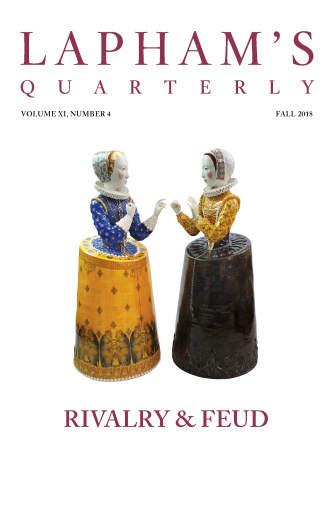At the time that the blessed Buddha was staying at Ragagaha, in the Bamboo Grove, the Khabbaggiya bhikkus carried out official acts against bhikkus who had not confessed themselves guilty. Those bhikkus who were moderate were annoyed, murmured, and became indignant and told the matter to the Blessed One.
“Is it true, O bhikkus, that the Khabbaggiya bhikkus do so?”
“It is true, Lord.”
Then he rebuked them, and when he had delivered a religious discourse, he addressed the bhikkus and said, “No official act, O bhikkus, is to be carried out against bhikkus who have not confessed themselves guilty. Whosoever does so shall be guilty of a dukkata [offense].”
Now at that time the bhikkus in sangha [community] assembled, since they became violent, quarrelsome, and disputatious and kept on wounding one another with sharp words, were unable to settle the disputed question that was brought before them.
They told this matter to the Buddha.
“I allow you, O bhikkus, to settle such a dispute by the vote of the majority. A bhikku who shall be possessed of five qualifications shall be appointed as taker of the voting tickets—one who does not walk in partiality, one who does not walk in malice, one who does not walk in folly, one who does not walk in fear, one who knows what votes have been taken and what have not been taken. And thus shall he be appointed.
“First the bhikku is to be requested whether he will undertake the office. Then some able and discreet bhikku is to bring the matter before the sangha, saying, ‘Let the venerable sangha hear me. If the time seems suitable to the sangha, let the sangha appoint a bhikku of such and such a name as taker of the voting tickets. This is the motion. Whosoever of the venerable ones approves of the bhikku of such and such a name being appointed as taker of the tickets, let him keep silence. Whosoever approves not, let him speak. The bhikku of such and such a name is appointed by the sangha as taker of the voting tickets. Therefore is it silent. Thus do I understand.’
“There are ten cases, O bhikkus, in which the taking of votes is invalid and ten in which it is valid. Which are the ten in which the taking of votes is invalid? When the matter in dispute is trivial; when the case has not run its course; when regarding the matter in dispute, the bhikkus have not formally remembered, or been formally called upon to remember, the offense; when the taker of votes knows that those whose opinions are not in accordance with the law will be in the majority or probably may be in the majority; when he knows that the voting will result in a schism in the sangha; when he is in doubt whether the voting will result in a schism in the sangha; when the votes are irregularly given; when all do not vote equally; and when they do not vote in accordance with the view that they really hold. These are the ten cases in which the voting is invalid.”
From the Vinaya Pitaka. According to Theravadin tradition, when the Buddha died around 486 bc, thus attaining parinirvana (complete nirvana), five hundred of his disciples convened at Rajagrha to commit his teachings to memory. The resulting set of scriptures, the Tipitaka (Three Baskets), was transmitted orally until Pali monks transcribed it in the first century bc. The Vinaya Pitaka (Basket of Discipline), the oldest of the Tipitaka’s three sections, sets out rules governing monastic life, including ceremonies, clothing, conduct, and procedures for settling disputes.
Back to Issue

